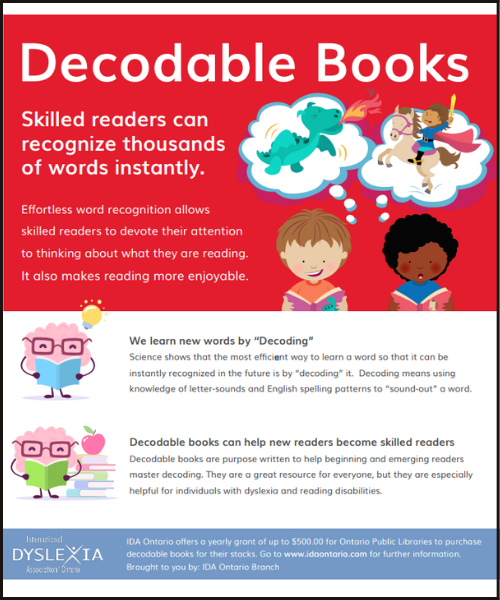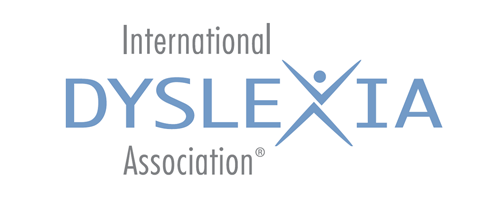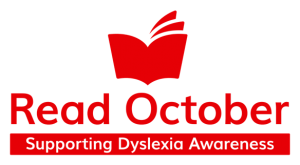
Decodable Books
What are decodable books?
Decodable books are books that contain only phonic code that a reader has leaned. The text in decodable books has been carefully selected using evidence-based strategies designed to support reading development.
Decodable books encourage children to sound out words using decoding strategies instead of guessing at the words based on the picture or other clues. This provides the reader with the opportunity use their developing segmenting and blending skills to read words quickly and effortlessly; thus experience independent reading success.
Research has shown that most efficient way to learn a word, so that that it can be easily recognized in the future, is by 'decoding' it.
What is decoding?
Decoding is the ability to apply your knowledge of letter-sound relationships, including knowledge of letter patterns, to correctly pronounce written words. As readers learn to understand these relationships they begin to recognize familiar words quickly and to figure out words they haven't seen before.
Many children benefit from instruction in the art of decoding. One approach to improved decoding is teaching a young reader phonics - the principles of letter-sound relationships, how to sound out words, and exceptions to the principles.
Why are decodable books important?
"About 30% of readers struggles to learn to read" - Prof. George Georgiou University of Alberta. Decodable books can help struggling readers build their confidence and take a big step toward fluent independent reading.
Even "good" readers can benefit from decodable books since children with a good sense of story and fairly strong memory manage often manage to hide their reading problems behind guess work and fly under the radar, not getting the help they need.
Decodable books Vs Leveled Readers
Decodable text are different from the 'level reader' system used by many reading programs in that while decodable text relay on the readers existing knowledge, traditional level readers use clues and guess work. In level readers children are taught to use clues from the text or picture to guess at unfamiliar words and/or memorize a list of words found in the text. Often predictable and repetitive sentences are used to aid children in their guess work but still require advance decoding skill.
When to use Decodable text
Using decodable text in the early stages of literacy development help readers build their decoding skills and learn to read without relaying on guesswork. This helps readers build fluency and become more proficient with word-level reading, allowing them to tackle more authentically written texts. Reading without guess work is especially important for readers with dyslexia or those who are struggling to learn to read because decoding encourages using knowledge of letter-sounds in ways that builds on previous knowledge.
-----------------------------------------------------------------------------------------------
Special Thanks to the international Dyslexia Association and the Read October Grant. This $500 mini-grant provides an opportunity for public libraries to help promote dyslexia awareness and purchase resources such as decodable books and books about dyslexia for their collections.


What Are Decodable Books and Why Are They Important?- Reading Rockets
Decodable Books - Reading A-Z
Decodable readers and text passages - International Dyslexia Association
Word Decoding and Phonics - Reading Rockets
About Decodable Books - Teach My Kid to Read
